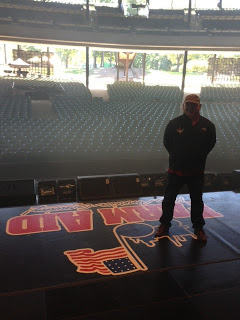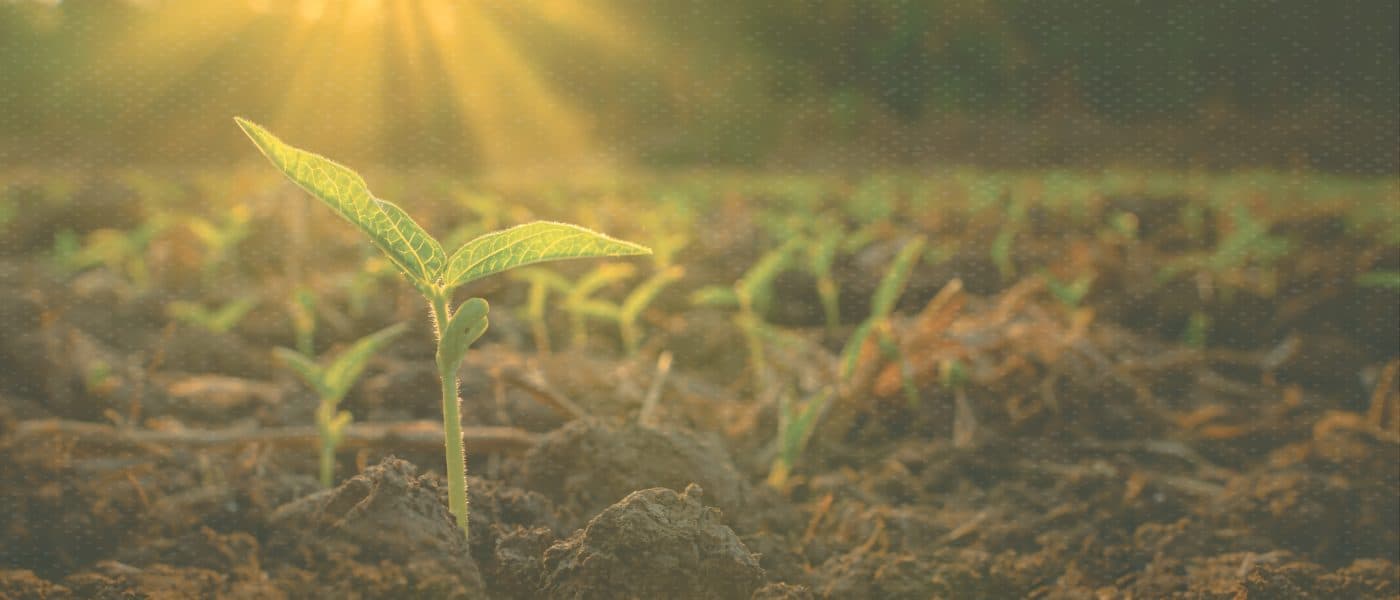 Last week, I talked with Ron Stern, Farm Aid’s producer of 28 years, about his #Road2FarmAid. During his storied career, Ron’s been on the road with the Rolling Stones, Sting and Paul McCartney.
Last week, I talked with Ron Stern, Farm Aid’s producer of 28 years, about his #Road2FarmAid. During his storied career, Ron’s been on the road with the Rolling Stones, Sting and Paul McCartney.
How did you get started with Farm Aid?
Well, I got brought in on the first one, when Willie and the then governor of Illinois, Jim Thompson, decided to pull together a concert to help farmers during the height of the farm crisis. We had 54 bands that day before 78,000 fans. There were only a few weeks to get the show ready and Willie’s booking agent got a hold of me to head up and all-star production team.
Stadium shows were a relatively new concept and I was one of the most experienced of a handful of production people that did stadium shows and I was based in Chicago. It was an amazing day. I’ve only missed once since.
And you manage the quickest set changes possible by utilizing something that has gained mythical status at Farm Aid: The rolling riser. What’s that about?
Most set changes are up to 30 minutes; we do many of ours in 6, 8, 10 minutes thanks to rolling risers. We have three rolling risers, or band carts, in use throughout the show. The audience, looking at the stage, always sees the cart that’s loaded and ready to go, and the band plays on that. Behind the curtain or the video screen, there are two additional carts. One of those has just been rolled off the stage from the previous band, and we’re taking that gear off and putting on a later band’s gear. The third cart is always loaded, and we are checking that cart out with a separate team of roadies and sound techs to make sure it’s ready to go as soon as the band on stage is ready to come off. Once it gets on stage, we’re pretty much ready for the next band right away.
How is the Farm Aid concert different from a regular tour?
It’s a completely different experience. When you do shows with McCartney, or the Stones, or Sting, you have lots of rehearsal time, you do the same show every night in a different country or city so you build up a rhythm–you have a system so it becomes routine. Farm Aid is a one day show that happens once a year in a different place every year. So we design the show for the venue and we don’t have too much time to practice or rehearse. We build in a little practice and rehearsal time, but it’s nothing like you do with a tour.
Right, we do it once a year! People marvel that this is my 11th concert – but I tell them, “On concert day, it’s kind of like my 11th day on the job!”
Yeah, and every year is different, every market is different, the local people we do it with are different. It’s kind of refreshing. You throw a lot of energy in for one day, but as you know Jen, it doesn’t happen in one day, we plan it all year.
Tell us about the “Farm Aid vibe.” What’s that?
Well it’s awesome and that’s a big reason why you and I and so many other people come back every year. It comes from Willie. Willie has a spirit of caring and togetherness, and everyone is equal in Willie’s eyes. So the vibe of Farm Aid is nothing like a regular tour, which is kind of businesslike. There’s tension and deadlines. There are deadlines here, but because Willie is so giving of his time, all of us are giving of our time. And because Willie is so fair to everybody, his way of being infects everybody. The roadies, for instance, they all want to come back every year. Many roadies tell me it’s the favorite show that they work on. Because of Willie’s example everybody wants to be part of it.
What’s it like for the artists who play on the Farm Aid stage?
For the artists, it’s special too. At Farm Aid, we have Neil, John, Dave, Willie, and other headliners. On a regular day, they’re used to being the one star and everything is focused around THEIR show. At Farm Aid, we have 15 stars. You give them what makes them comfortable, but they have to share a little bit. Their set time won’t be as long, their dressing room isn’t available for them all day, their backstage catering is communal and I think the bands kind of like it. Farm Aid is one day when they’re part of a team—a community—instead of individuals.
What have been some of your best Farm Aid moments?
Oh, the collaborations we’ve seen over the years – it’s endless. But the best moment was seeing Elton John on Farm Aid IV in 1990. He dedicated his performance of “Candle in the Wind” to Ryan White, who you might remember was a teenage boy diagnosed with AIDS after receiving an infected blood transfusion. Elton was our surprise guest that year and when he was on site he got news that Ryan White was dying. I asked him, “Elton, do you still want to do this?” And he said, “I just want to play.” So I took him to the stage and he did the most amazing rendition of “Candle in the Wind,” just him and the piano. I don’t know how to put that in words… there’s a million Farm Aid stories.
How has Farm Aid changed you?
It makes me eat better. When I started, I did it for the production end because that was my career. Now, I really hear, and live, the message. I eat organic, I buy local. And I enjoy meeting the people who believe in what Farm Aid believes. I find them to be sort of un-conventional people.
Farm Aid makes me realize there’s a bigger picture. It doesn’t all have to be about your daily grind. You can give back a little bit. The trick is finding a job that you want to go to every day. Farm Aid is my favorite job. The first Farm Aid concert was the hardest job of my life. And keeping Farm Aid going, for 28 years, I’m kind of proud of that. It’s not just the concert… it’s so much more than the concert.


